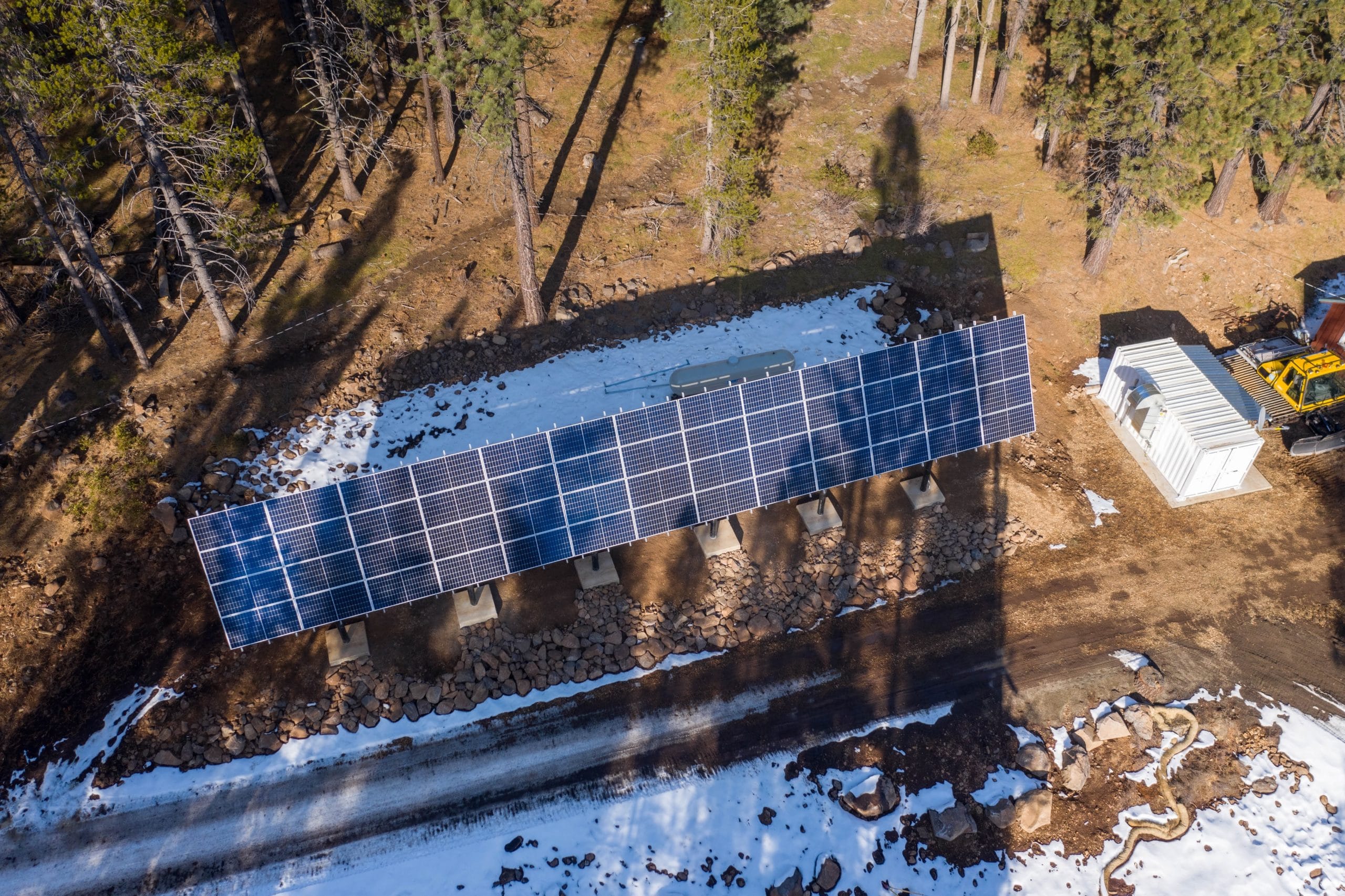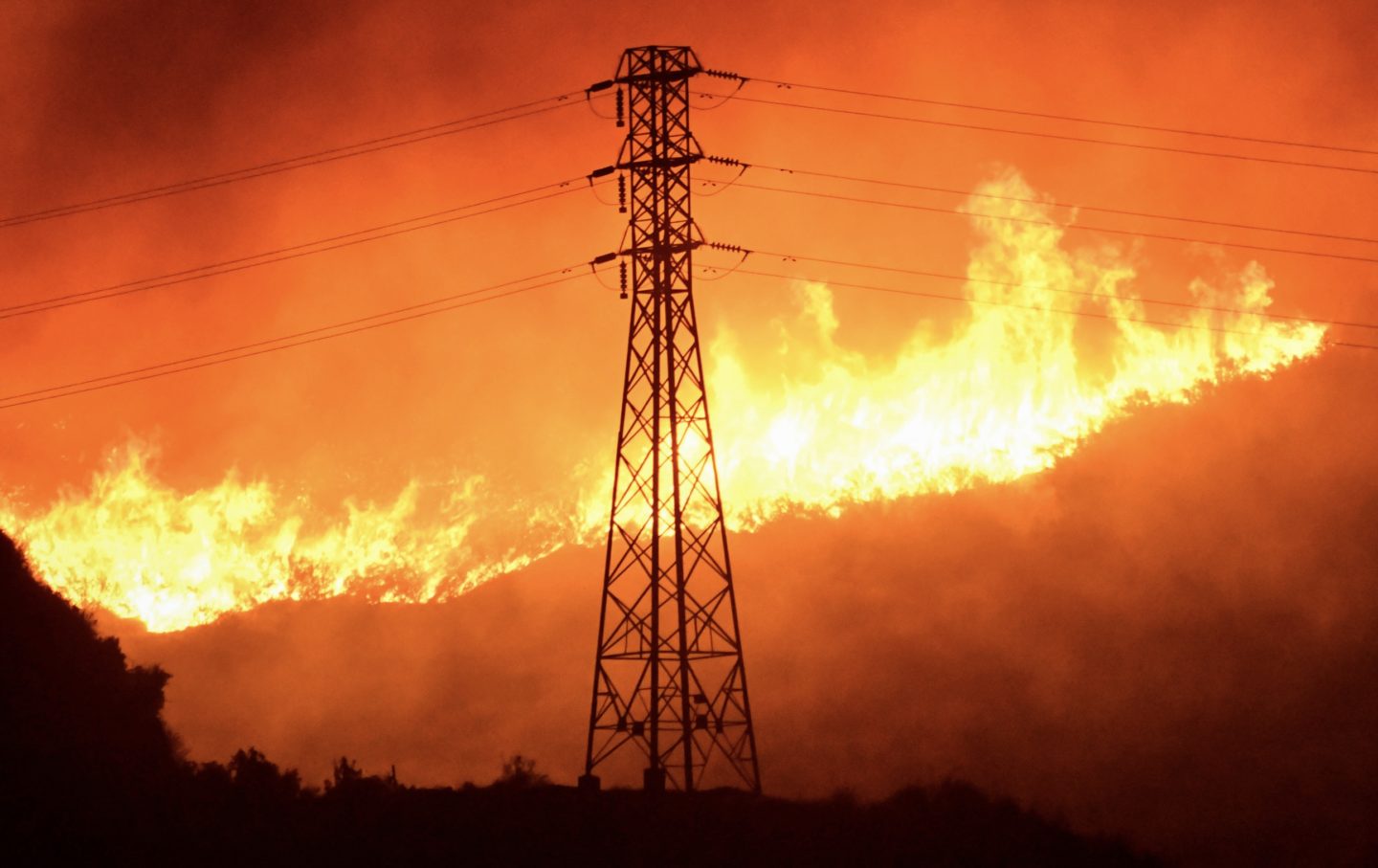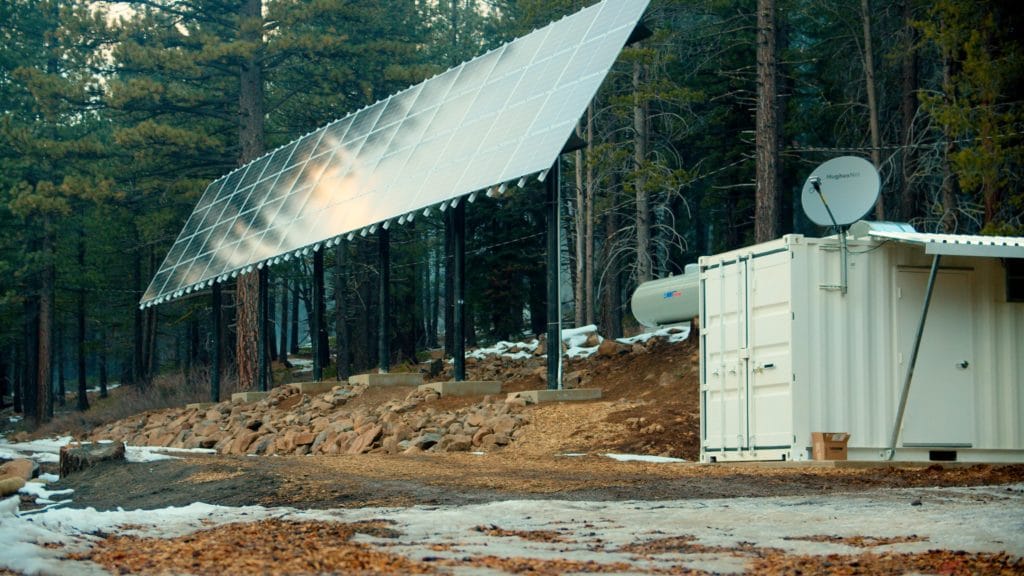
BoxPower Microgrid Proves to be Ideal Solution for California Utility
When a California-based electric utility was researching wildfire mitigation options to harden a transmission line serving one of its customers, it selected Grass Valley, California-based BoxPower and its ground-breaking solar+storage container systems.
Liberty Utilities, a regulated utility with about 50,000 customers on the West side of Lake Tahoe, was investigating making upgrades such as installing covered conductors to its transmission lines that run through a mountainous area to a remote research station operated by University of California, Berkeley. But after running a cost and feasibility analysis, it realized it would be better to de-energize the line during wildfire season and instead utilize a BoxPower containerized solar/storage system.
“We were looking to make certain upgrades to target our transmission lines for wildfire season,” Amanda Chee, Liberty Utilities Program Manager, Capital Administration and Planning, said. “In the process of developing the project for the line, we realized that this could have been a very expensive project.” It would have cost about $3 million to harden the entire 4-mile line, which has 90 poles and serves Berkeley’s Sagehen Creek Field Station. BoxPower’s solar/battery system with propane back-up will allow the utility de-energize the lines in summer, according to Chee.
BoxPower’s experience in the area and dealing with remote environments helped steer Liberty toward the company, she said, adding that grading and foundation work in the remote area would have been difficult and costly. BoxPower was chosen over “numerous bidders” responding to a Request for Offers it issued earlier this year after identifying the need in early 2020. Ground was broken September 8th on the project, which is due to go operational in October.
“We are trying to go against wildfire season, time is of the essence,” Chee said.

The project required a unique approach due to its location in a remote area of the Sierra Nevada that gets large amounts of snow in winter, according to Michele Nesbit, BoxPower Co-Founder and COO.
“Beyond what we just do normally, there was some design constraints that made this rather unique,” Nesbit said. The 20-kW, 68-KWh system will use propane back-up, but is projected to be 97% renewable. The location has a climate-controlled container design and a load rating of 375 pounds per square foot of snow. BoxPower made small modifications to its standard design increasing tilt to a 60-degree angle so the snow won’t pile up mounted with eight-food clearance from the ground. This is also the first for BoxPower in its home county of Nevada County, “so we’re rather excited about that,” she said. The BoxPower system will prevent the need to inspect the lines during fire season and eventually eliminate the need for them altogether once more generation is put into place, she said.
In partnership with New Sun Road, the system includes real-time monitoring, remote diagnostics, automated alert and reporting. This complete site management tool also enables peak demand reduction, time-of-use optimization, data consolidation and aggregation for resale, as well as virtual power plant (VPP) capabilities.
Lindsay Maruncic, Liberty’s Senior Manager, Renewable Energy, said Berkeley was “100 percent” on-board with the microgrid. “They have been so incredibly cooperative with the project. They have even been involved with the design conversation we had. We really couldn’t ask for a better partner in this project,” she said, adding that the U.S. Forest Service was very accepting and “it’s been a great team.”
An online virtual tour of the site has been posted, which was greatly beneficial during the project development because it avoided the need for on-site visits. That innovative approach is just one more way the Sagehen project developers are using the benefits of technology to substantially reduce costs and complexities, resulting in an ultimately safer and more reliable way to meet the needs of customers.

